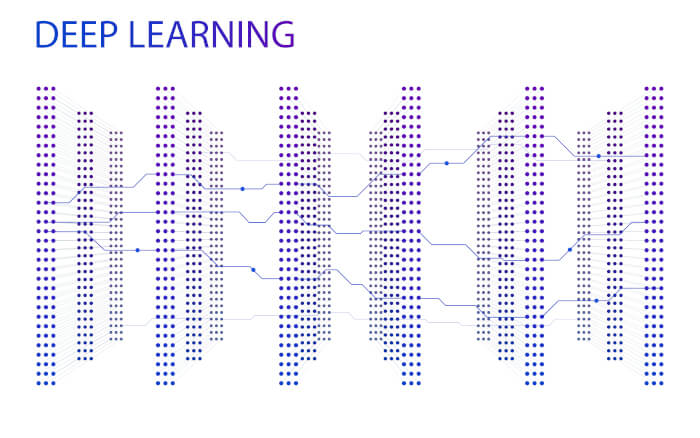The Microsoft Cognitive Toolkit is an open source unified deep learning toolkit that describes neural networks as a series of computational steps via a directed graph.
In this directed graph, leaf nodes represent input values or network parameters, while other nodes represent matrix operations upon their inputs. CNTK allows users to easily realize and combine popular model types such as feed-forward DNNs, convolutional nets (CNNs), and recurrent networks (RNNs/LSTMs). It implements stochastic gradient descent (SGD, error backpropagation) learning with automatic differentiation and parallelization across multiple GPUs and servers.
CNTK requires OpenMPI 1.10.x to be installed on your system.
Features include:
- Optimized, built-in components:
- Components can handle multi-dimensional dense or sparse data from Python, C++ or BrainScript.
- FFN, CNN, RNN/LSTM, Batch normalization, Sequence-to-Sequence with attention and more.
- Reinforcement learning, generative adversarial networks, supervised and unsupervised learning.
- Ability to add new user-defined core-components on the GPU from Python.
- Automatic hyperparameter tuning.
- Built-in readers optimized for massive datasets.
- Efficient resource usage:
- Parallelism with accuracy on multiple GPUs/machines via 1-bit SGD and Block Momentum.
- Memory sharing and other built-in methods to fit even the largest models in GPU memory.
- Express your own networks:
- Full APIs for defining networks, learners, readers, training and evaluation from Python, C++ and BrainScript.
- Evaluate models with Python, C++, C# and BrainScript.
- Interoperation with NumPy.
- Both high-level and low-level APIs available for ease of use and flexibility.
- Automatic shape inference based on your data.
- Fully optimized symbolic RNN loops (no unrolling needed).
Website: www.microsoft.com
Support: Documentation, GitHub Code Repository, Gitter
Developer: Microsoft
License: MIT License
CNTK is written in C++. Learn C++ with our recommended free books and free tutorials.
Return to Deep Learning with Python
| Popular series | |
|---|---|
| The largest compilation of the best free and open source software in the universe. Each article is supplied with a legendary ratings chart helping you to make informed decisions. | |
| Hundreds of in-depth reviews offering our unbiased and expert opinion on software. We offer helpful and impartial information. | |
| The Big List of Active Linux Distros is a large compilation of actively developed Linux distributions. | |
| Replace proprietary software with open source alternatives: Google, Microsoft, Apple, Adobe, IBM, Autodesk, Oracle, Atlassian, Corel, Cisco, Intuit, SAS, Progress, Salesforce, and Citrix | |
| Awesome Free Linux Games Tools showcases a series of tools that making gaming on Linux a more pleasurable experience. This is a new series. | |
| Machine Learning explores practical applications of machine learning and deep learning from a Linux perspective. We've written reviews of more than 40 self-hosted apps. All are free and open source. | |
| New to Linux? Read our Linux for Starters series. We start right at the basics and teach you everything you need to know to get started with Linux. | |
| Alternatives to popular CLI tools showcases essential tools that are modern replacements for core Linux utilities. | |
| Essential Linux system tools focuses on small, indispensable utilities, useful for system administrators as well as regular users. | |
| Linux utilities to maximise your productivity. Small, indispensable tools, useful for anyone running a Linux machine. | |
| Surveys popular streaming services from a Linux perspective: Amazon Music Unlimited, Myuzi, Spotify, Deezer, Tidal. | |
| Saving Money with Linux looks at how you can reduce your energy bills running Linux. | |
| Home computers became commonplace in the 1980s. Emulate home computers including the Commodore 64, Amiga, Atari ST, ZX81, Amstrad CPC, and ZX Spectrum. | |
| Now and Then examines how promising open source software fared over the years. It can be a bumpy ride. | |
| Linux at Home looks at a range of home activities where Linux can play its part, making the most of our time at home, keeping active and engaged. | |
| Linux Candy reveals the lighter side of Linux. Have some fun and escape from the daily drudgery. | |
| Getting Started with Docker helps you master Docker, a set of platform as a service products that delivers software in packages called containers. | |
| Best Free Android Apps. We showcase free Android apps that are definitely worth downloading. There's a strict eligibility criteria for inclusion in this series. | |
| These best free books accelerate your learning of every programming language. Learn a new language today! | |
| These free tutorials offer the perfect tonic to our free programming books series. | |
| Linux Around The World showcases usergroups that are relevant to Linux enthusiasts. Great ways to meet up with fellow enthusiasts. | |
| Stars and Stripes is an occasional series looking at the impact of Linux in the USA. | |
